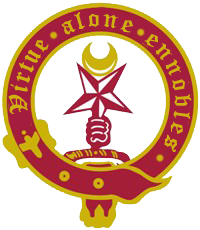Where there is high financial assets, legal regulation or commodity movement lies corruption; done with different motivations and endgames. Corruption is legally defined as a fraudulent intention to bypass prohibitions of law. Corruption is also defined by abuse of official positions and/or stations with actions contrary to duties and obligations for personal or third party benefits. (U. S. v. Johnson (C. C.) 20 Fed. 082; State v. Ragsdale. 59 Mo. App. 003; Wight v. Rindskopf, 43 Wis. 351; Worsham v. Murchison, 00 Ga. 719; U. S. v. Edwards (C. C.) 43 Fed. 07)
Relating the above legal definition to the maritime sphere it is relatively clear that corruption can easily occur as this industry has potential for abuse of position alongside the more obvious theft (money and resources) and smuggling. Unfortunately, corruption occurs wherever top positions of authority are present and assumed by those prone to corruption; under-paid, ethically-challenged and desperate.
Corruption is a controversial phenomenon in a sense that it is done with varied motivations; commonly perceived to be done for personal gain which itself is a double-edged sword as maritime officials may face many ethical challenges at sea. The sea, metaphorically connects not only nations but their social problems, political and environmental calamities which opened the floodgates for a variety of issues that may voluntarily or involuntarily appear within your maritime operation.
A recent example will be the Ebola outbreak that has the world in fear and therefore extra careful when looking at travel; imposing new laws for the logistics sectors and giving special attention to transports coming from African and some Asian countries. How does this relate to corruption? It relates to ethics and loyalty to shipping codes and rules as seafarers and commanding officers may be challenged with a situation which can compromise their integrity.
Leading back to Ebola, there is a chance for stow-aways on vessels travelling to affected countries; along with the possibility of stow-aways occasionally entering the vessel upon negotiation with ship command in exchange for material or financial compensation or threats. It is worth mentioning that there may exist underground/unauthorised networks that transport refugees through alternate ways; refugees that relief organisations failed to accommodate in fear of contracting the disease.
A theoretical scenario to lead to corruption will be the approach of ship’s high officers in negotiation to place refugees aboard for a price; outcome depending on the officer’s word. This is where the controversy of corruption appears as both personal benefit and integrity is on the line alongside ethics and moral principles. However, corruption arises regardless of situation as positions are still being abused and some gain is still derived; material and own moral level thus meeting criteria of legal definition.
What makes an officer corrupt, primarily is the abuse of positions to exploit and bypass legal prohibitions thus making the above scenario a case of corruption as an officer who let possible infected onboard therefore violating laws imposed to control the virus. However, a viral outbreak is a drastic change to the normal flow of maritime operations therefore degrees of corruption tend to rise leading to analysing from a normal scope.
On a normal maritime landscape minus global outbreaks where a vessel is likely to be subjected to an array of regulations. An example of this will be the vessel’s denial of entrance to a port therefore to complete the operation, a ship’s officer may offer a bribe to the port authorities. Another example of corruption is forging of important documents for clearance such as lading bills, as seen in the case of one Belgian ship agent releasing $270,000 of oil against a fake lading bill. Seafarers also have potential to become corrupted therefore jeopardising reputation of their respective company or vessel.
Statistically, according to Robert Barrington of Transparency International (global anti-corruption agency) one in four people worldwide accept bribes therefore feeding culture of corruption and restricting or total denial of access to essential services such as health, education and justice. However, this is not the only prominent type of corruption within the maritime sphere as there is also money laundering which steadily grows in popularity.
What is money laundering? It is the act of exchanging money or other assets obtained by criminal activity which through said operations turns into ‘clean’ money; used commonly to finance terrorist operations and done to avoid attention from governing, legal bodies and banks as criminal actions raise high amounts of money. Money laundering in the maritime sphere is done mostly through the following techniques:
- Under or over-invoicing goods or services to misrepresent price and therefore allow ‘skimming’ of money off the amount.
- Short or over-shipping to misrepresent quantity to justify the amount of money.
- Phantom shipping; documents are falsified thus no goods are actually shipped.
Money laundering, also affects legitimate business transactions in most parts of the world; an example of this is UK regulations which state that transactions above £1000 threshold have a minimum requirement to identify and verify names and identities of payers and their bank accounts. However, according to the 2013 anti-money laundering financial conduct authority report, financial institutions failed to prioritise knowing their clients and due diligence.
Unfortunately, there is no concrete method of fighting corruption since there is too much variables to gain control over and maintain in longer terms. Corruption is done on a covert level with numerous ends which are hard to track and find therefore hard to control and eliminate.

